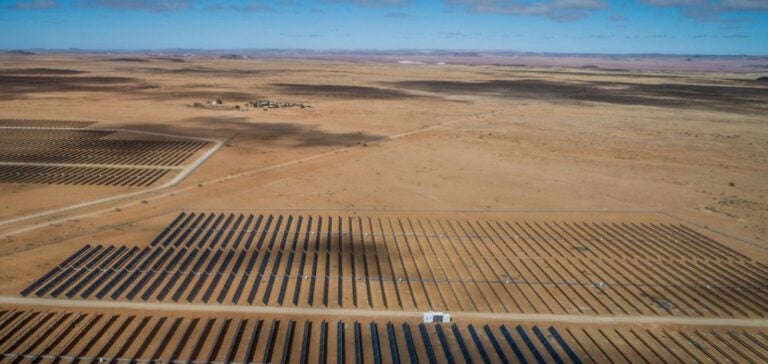Energy company ENGIE continues its expansion in renewable energy in South Africa with a new financial boost. The Asian Infrastructure Investment Bank (AIIB) has approved a commitment of $81.7 million in a green loan totaling $545 million, aimed at expanding ENGIE’s portfolio of clean energy in this strategic region. This financing is part of a major co-financing effort involving the International Finance Corporation (IFC) and Proparco, both of which actively support sustainable investments.
The partnership with the AIIB is not new for ENGIE. Earlier this year, the company received funding for a 400 MW solar project in Gujarat, India, illustrating the growing cooperation between these financial institutions to accelerate the global energy transition. In South Africa, ENGIE has a portfolio of 1.6 GW of renewable projects under development, including solar and wind installations.
Objectives of the Green Loan in South Africa
With this loan, ENGIE aims specifically to support the development of several solar power plants, contributing to the growth of renewable energy capacities in the country. In mid-October, ENGIE marked the launch of its Graspan solar project in the Northern Cape province. This installation, with a capacity of 75 MW, is ENGIE’s second solar project initiated in South Africa this year, following the Grootspruit plant in the Free State.
Jean-Marc Turchini, Head of Corporate Financing at ENGIE, stated: “To accelerate the energy transition, significant resources and efforts are needed from numerous stakeholders. Our partnership with the AIIB is a significant contribution, and we are grateful for their support of these initiatives.”
A Strategic Expansion in Africa
The increased financial support from international institutions such as the AIIB and IFC reflects the growing commitment to developing renewable energy in strategic regions like Africa. South Africa, in particular, has identified solar energy as a key sector to diversify its energy mix, reduce its dependence on coal, and meet the growing demand for clean electricity.
Beyond solar projects, ENGIE has already committed efforts to wind projects and other renewable technologies in southern Africa. The recent commitments from the AIIB bolster the credibility of the group’s energy plans, which align with a sustainable development vision supported by solid financing and leading institutional partners.






















